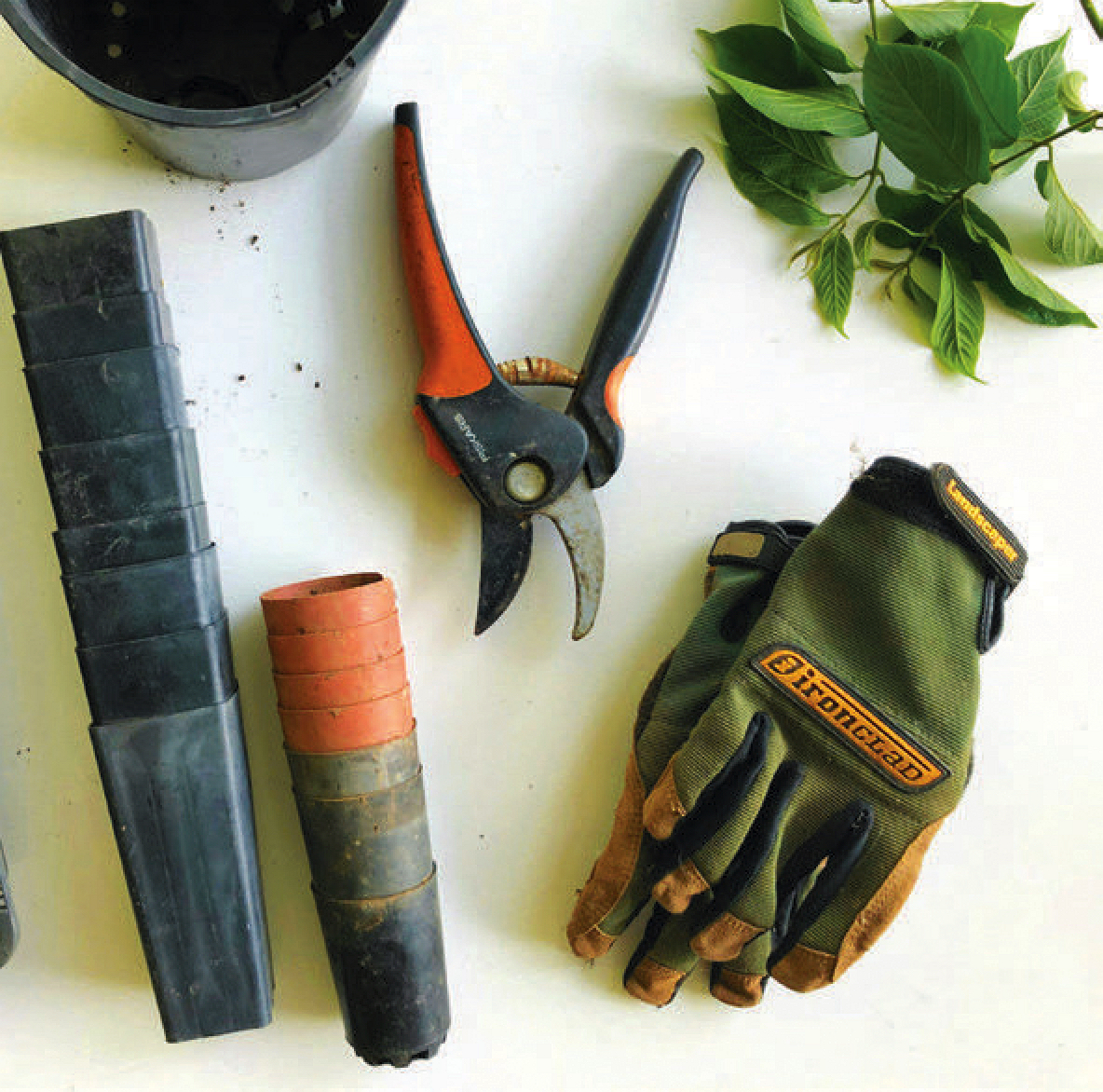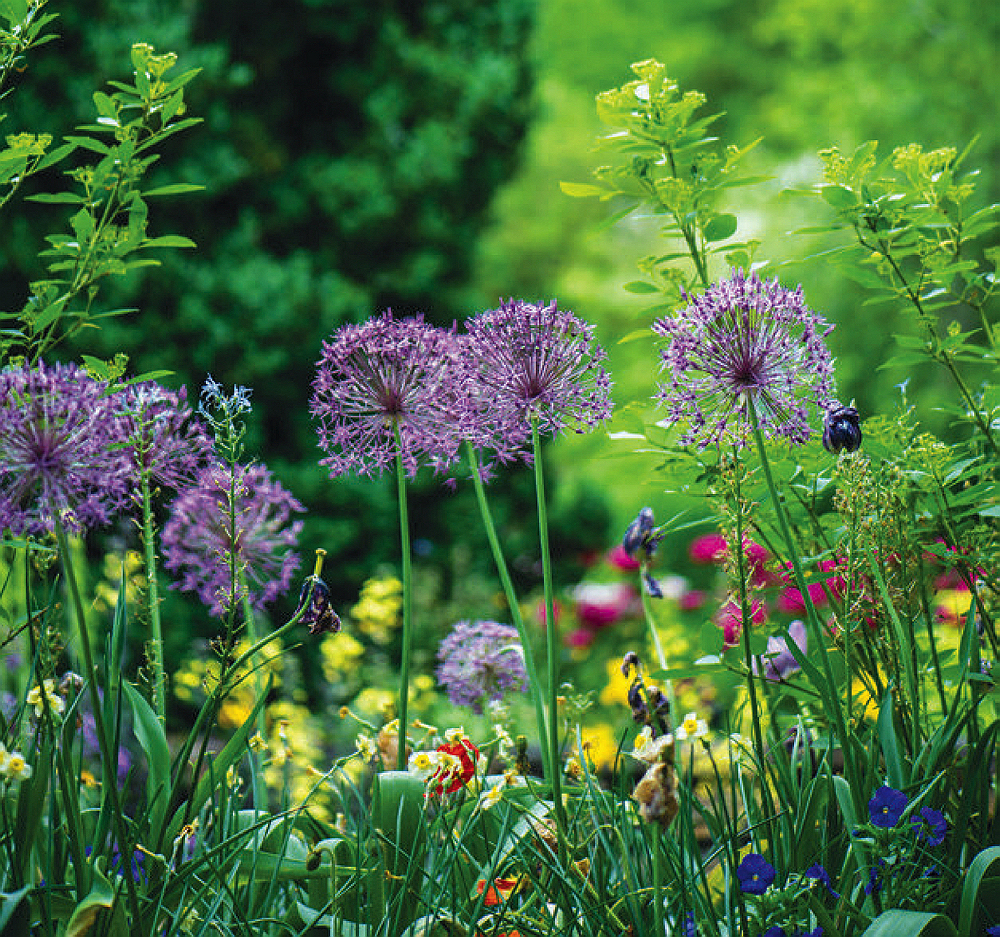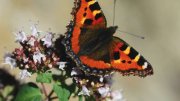How often have you wandered the Arnold Arboretum or a Trustees property, longing to bring that serenity and lush beauty to your own yard? Happily, you can—and you can do it responsibly—with rewilding. Think of it as the opposite of high-maintenance gardening, without the harmful pesticides and fastidious manicuring.
With rewilding, your yard can bloom and blossom while also functioning as a welcoming habitat for other creatures. The emphasis here is on planting native species that nourish local wildlife, cutting grass less often to allow better shelter for insects, and avoiding harmful chemicals that scare off pollinators. It’s an eco-friendly, attractive, natural way to beautify your space.
The Native Plant Trust (www.nativeplanttrust.org) is a comprehensive spot to jumpstart your rewilding adventure: The Wayland-based conservation hub sells hundreds of native plants grown from seed. Their colorful shops open in April, with options to preorder. They also provide education for aspiring gardeners: Take classes on restoration ecology, native plant design, and much more—they even offer a certificate in Native Plant Studies for serious planters.

Harvard’s own horticultural haven, Arnold Arboretum (arboretum.harvard.edu), maintains 16,000 plants of roughly 2,000 species on property. Visit to admire the landscape for creative inspiration and take gardening workshops—or brush up on your plant knowledge in their 40,000-volume horticultural library and archives.
The Trustees of Reservations (www.thetrustees.org) is an organization that maintains approximately 100 properties across Massachusetts, with an emphasis on preservation and advocacy. It also maintains dozens of Boston community gardens, where it hosts popular urban gardening workshops and allows amateur gardeners to maintain their own plots and sell their wares.
If you’d rather not let nature take its course, turn it over to the experts: Boston’s Home Harvest (www.homeharvest.com) will go beyond classic landscaping to create fruit, vegetable, and herb gardens; nut and fruit trees (persimmon is a favorite); and custom greenhouses in harmony with your space. In Needham, Terrascapes (www.terrascapeslandscapedesign.com) specializes in sleek, sustainable landscape design, with a special knack for smaller spaces and courtyards.
Prefer the DIY route, but need a bit of support? The friendly gardeners at Weston Nurseries (www.westonnurseries.com) offer one-hour garden “coaching” visits to your property; they also host landscape design classes and online native design guides for yards of all shapes and sizes. In Norwell, Blue Stem Natives (www.bluestemnatives.com) will also visit your home for a personal tutorial on native planting and maintenance; they maintain a handy online retail center with an ever-changing array of shrubs, trees, grasses, and flowers.

National advocacy organization Wild Ones (www.wildones.org), with chapters on the North and South Shores, is devoted to educating the public about the sustainable landscaping movement, with a host of webinars on hot-button ecological issues: how native plants improve outdoor air quality, native gardening, and climate change, and much more. They also offer step-by-step guides, easy for novices to understand, focused on planning, cultivating, and maintaining sustainable home gardens.
In Waltham, Grow Native (www.grownativemass.org) hosts a renowned native plant sale in late May and early June: Consider it the Taylor Swift concert of the plant-growing world. Stock up on goodies for your garden, and enjoy their free, whimsical lectures, including “The Secret Lives of Native Bees and Gardening Among Hungry Mammals.” Last but not least, visit the Massachusetts Department of Conservation & Recreation
(www.mass.gov/guides/growing-wild-massachusetts) for a handy rewilding guide, complete with yard signs and posters to help your yard—and the rewilding movement—grow.









